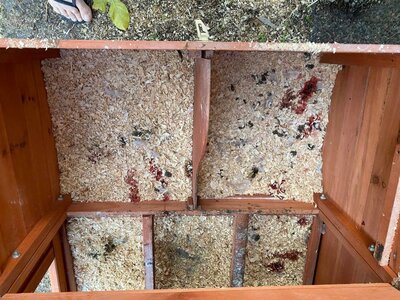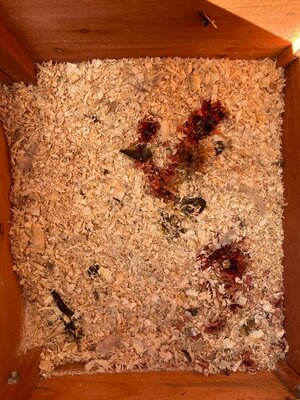georgie123
In the Brooder
- Jul 14, 2020
- 15
- 11
- 21
Good morning, my first time writing here. I have four Pullet Pekin Bantams, the oldest hen (approx. 5 months) has been pooing significant amount of blood every morning for the last week. I have treated her for mites, worms, given her amprolium in case of coccidiosis but ceased after three days with no improvement. I have been working DE in small parts well mixed into their feed for the last week and as normal making up about 15% of their dust bath. Also been adding ACV into their water incase it's worms. She was quite lethargic and puffy one morning a few days ago leading me to think it was cocci but has since returned to herself but still persisting with blood. The coop has had a deep clean and I have been removing every bit of blood first thing in the mornings to try and keep the environment sterile. I've made sure the coop is vermin proof and I'm just at such a loss what to do, have been waking up every morning expecting her to pass but shes still as a happy as ever. Noting that her bloody stool is ONLY in the mornings, starts off quite significant and then slowly less and less over a couple hours until it becomes no longer runny and with no more traces of blood. She had pulled out quite alot of feathers about a weak ago, and while she seems to be preening a little more than normal shes no longer losing mass amounts of feathers from her chest and feet. I've attached some photos, these photos were taken the last two mornings. The only thing i'm left thinking is 'is it a severe case of worms?' maybe a type I haven't treated for? I used Killiverm at 15ml to 2L for the little bantams and only one treatment leaving out for 2 hours, the ACV seems to help a little. Also been giving some greek yoghurt to try and help that tummy flora. Thanks so much for your time, Any help is greatly appreciated kind regards, Georgie





